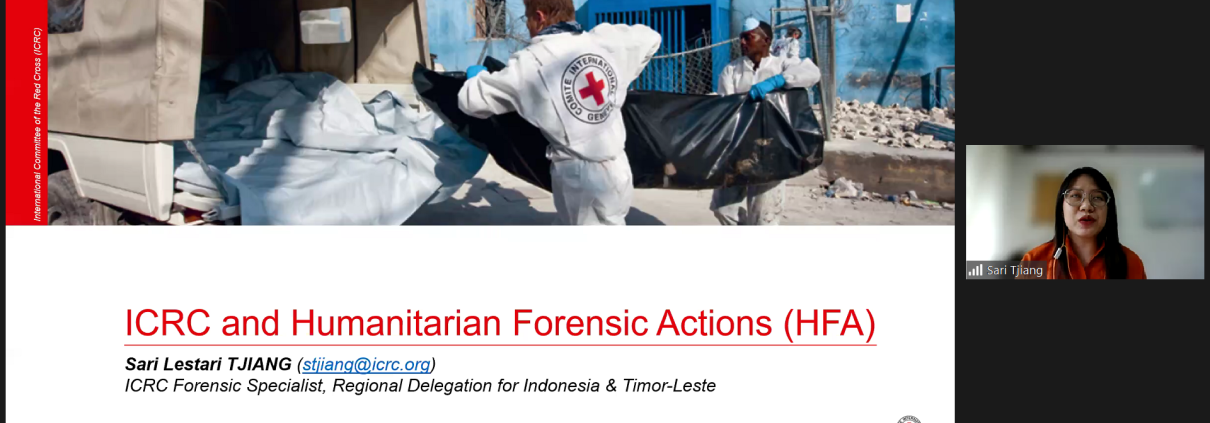Humanitarian Forensic Action [Raboan Discussion Forum]
Wednesday (26/10) the Center for Bioethics and Medical Humanities again held a Raboan Discussion Forum with the topic ICRC and Humanitarian Forensic Action. The event, which was held virtually, invited the speaker, dr. Tjiang Sari Lestari, Sp.FM from the International Committee of the Red Cross (ICRC) Regional Delegation to Indonesia and Timor Leste. Meanwhile, the moderator was Desy Putri Ratnasari S.Si M.Sc.
The International Committee of the Red Cross (ICRC) is a humanitarian organization born out of concern for the fate of war victims. In Indonesia, the ICRC was established in 1987.
dr. Tjiang Sari Lestari explained that the ICRC is engaged in four focus activities, namely Protection, Assistance, Prevention, and Cooperation.
One of the focuses of activities carried out by the ICRC is conducting Humanitarian Forensic Action. This activity aims to ensure that the victims’ bodies can be treated with respect and dignity. Referring to International Humanitarian Law, improper handling of corpses can result in the bodies being unrecognized, or incorrectly identified. Bodies whose status is not identified will be recorded as missing persons so they cannot be returned to their families for proper and proper burial.
dr. Tjiang Sari Lestari explained that the ICRC already has a guide used by volunteers with the title Management of The Dead after Disaster (MotD). The guidelines cover the process that must be followed to handle the bodies of victims of natural disasters or war, from the time the bodies are found until they are returned to their families. The process is divided into four which is: the discovery of the body by the first responder team, information collection, data management and forensic identification, and last is returning the body to the family.




Leave a Reply
Want to join the discussion?Feel free to contribute!